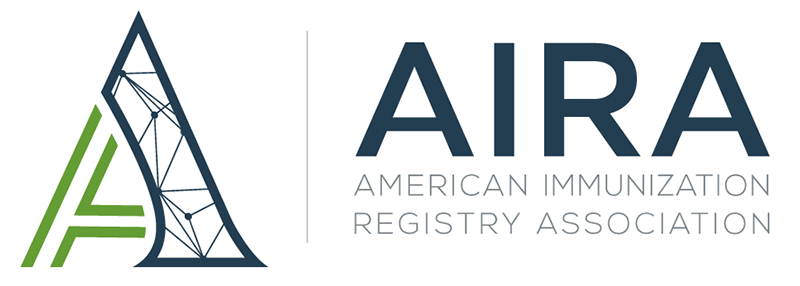February ACIP Meeting Highlights
Background
The Advisory Committee on Immunization Practices (ACIP) met on February 28–29 to discuss COVID-19, chikungunya, diphtheria and tetanus (DT), influenza, polio, RSV for adults, meningococcal, pneumococcal, and combination vaccines.
Summary of Votes
Below is a summary of the votes that took place.
COVID-19 Vaccine
- ACIP recommends that persons over 65 years of age who have already received a dose of the current COVID-19 vaccine should receive an additional dose of 2023-2024 Formula COVID-19 vaccine.
Chikungunya Vaccine
- ACIP recommends chikungunya vaccine for persons 18 years of age and older who are traveling to a country or territory where there is a chikungunya outbreak.
- ACIP voted that chikungunya vaccine may be considered for the following persons traveling to a country or territory without an outbreak but with evidence of chikungunya virus transmission among humans within the last five years:
- Persons over 65 years of age, particularly those with underlying medical conditions, who are likely to have at least moderate exposure to mosquitoes
- Persons staying for a cumulative period of six months or more
- ACIP recommends chikungunya vaccination for laboratory workers with potential for exposure to chikungunya virus.
Vaccines for Children (VFC) Resolutions
- A VFC program resolution was passed for diphtheria, tetanus, and pertussis vaccines. This resolution permits Td vaccine use in VFC-eligible children younger than age 7 years for whom pertussis vaccination is contraindicated.
Additional Discussion
Over the course of the two-day meeting, other topics were discussed, included:
- Influenza Vaccines: Data on flu vaccine effectiveness (VE) estimates were shared; 2023–2024 influenza vaccine reduced the risk for medically attended influenza outpatient visits and hospitalizations among children, adolescents, and adults across 22 states. Quadrivalent live attenuated influenza vaccine (LAIV4) was not associated with increased asthma symptoms or asthma exacerbations in the 14 or 42 days following immunization and may be a suitable option for children ≥5 years with asthma, including moderate to severe asthma. WHO and the FDA Vaccines and Related Biological Products Advisory Committee (VRBPAC) have recommended excluding B/Yamagata from influenza vaccines. On March 5, VRBPAC recommended the use of trivalent influenza vaccines for the 2024–2025 US influenza season.
Impact on IIS: Currently, trivalent influenza vaccine CVX codes are inactivated. Additional conversations about which CVX codes will be needed for the coming influenza season will need to occur.
- Polio Vaccines: ACIP discussed two policy topics:
- Considerations for the potential use of novel type 2 oral poliovirus vaccine (nOPV2) as an outbreak control measure in the United States
- Clinical considerations for children who received fractional dose inactivated polio vaccine (fIPV) in other countries
Impact on IIS: Additional conversations about how IIS document fIPV doses are needed. Presently, 20% of the global birth cohort receive a fIPV dose.
- Adult RSV Vaccines: Preliminary data from multiple safety surveillance platforms was shared, along with data from Moderna on its investigational RSV vaccine (mRNA-1345) in adults aged ≥60 years. ACIP discussed upcoming potential policy decisions:
- Risk of severe RSV disease in adults ages 50–59 years, especially those with chronic medical conditions
- RSV vaccine uptake among different demographic groups
- Transitioning away from shared clinical decision-making
- Meningococcal Vaccines: ACIP discussed revisiting the adolescent meningococcal vaccine schedule, including four options for consideration. ACIP reviewed policy questions for GSK’s pentavalent MenABCWY vaccine. In June, ACIP will discuss US epidemiology and workgroup considerations for meningococcal vaccines, with a vote anticipated in February 2025.
- Pneumococcal Vaccines: Invasive pneumococcal disease incidence reached a historically low level early in the COVID-19 pandemic but has returned to pre-COVID levels in recent years. ACIP discussed pneumococcal vaccines in advanced stages of development, including 24-valent pneumococcal vaccines and 21-valent pneumococcal conjugate vaccine. Policy considerations were discussed.
- Combined Diphtheria and Tetanus Toxoids and Acellular Pertussis, Inactivated Poliovirus, Haemophilus Influenzae Type B Conjugate, and Hepatitis B Vaccine (Vaxelis®): ACIP discussed whether Vaxelis (DTaP-IPV-Hib-HepB) vaccine should be included with PedvaxHIB in the preferential recommendation for American Indian and Alaska Native infants. A vote is anticipated in June.
Clinical decision support for immunization (CDSi) rules are regularly developed and reviewed. Updates are typically available shortly after the publication of ACIP recommendations in the “Morbidity and Mortality Weekly Report.”
The next scheduled ACIP meeting will be held June 26–28, 2024.
For a more detailed summary, view the March 6 issue of IZ Express.
